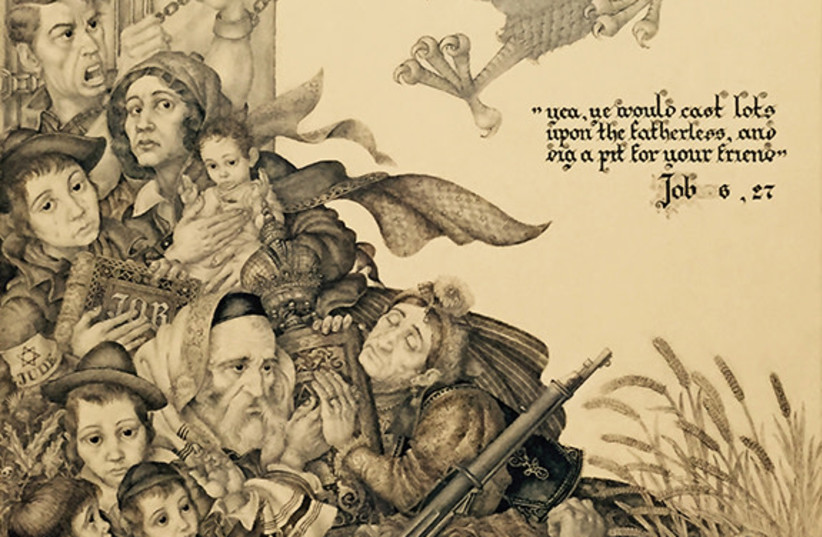Nadene Goldfoot
The Weizmann and Feisal Duo, working together for the betterment of both their peopleThere was a time in 1920 when the Jews were presenting themselves to the League of Nations with Emir Feisal who was all for the creation of a Jewish Homeland. The Emir had high hopes that the Jews would teach his Arab followers a thing or two. Ibn Hussein Feisal (1885-1933) became the king of Iraq from 1921, eldest son of Hussein, sherif of Mecca. To earn this title he led the Arab rising against the Ottoman Empire-Turkey from 1916 to 1918 and was designated king of Syria.
Lord Arthur James Balfour ( 1848-1930), British statesman and

The process of returning to Palestine by the Jews and regaining their land started in 1917 actually with the Balfour Declaration on 2 November when the British Government issued this declaration of sympathy with Jewish Zionist aspirations, pledging support for the establishment in Palestine of a national home for the Jewish people. Anyone reading the bible would see their history there. Even though Muslims didn't read this book, they had borrowed lots of it to make up their Koran which is what Mohammad had done, having Jewish tribes in his Arabian land where he was aware of their belief.
Feisal started off being very sympathetic to Zionism. He hoped to receive aid in building his future kingdom. He met Dr. Weizmann in Transjordan in 1918 and again in Paris in 1919 where they reached an agreement on mutual aid, conditional on the implementation of British promises to the Arabs. You see, they made promises to both the Jews and the Arabs that sometimes overlapped each other.
Haj Amin al-Husseini with Hitler, talking about the JewsThen the tide turned against Feisal when later, he was expulsed from Syria by the French in 1920. The Arab leader, Haj Amin al-Husseini, who had become the Sherif of Jerusalem, called the Grand Mufti, awarded by the British, a Jewish man to make the situation even more diabolical who didn't know what was happening, was feeling threatened by this big-shot Feisal, and caused havoc against him instead of working with him. So what happened? Feisal changed his opinion, feeling threatened, which he was by his own people, and his attitude to Zionism became hostile.
After losing The 1st battle that started 29 November 1947 that ended in 1949, Israel's War of Independence, the Sinai War from 29 October to 5 November 1956; and the Six-Day War from 5th to 11 June 1967, the Arabs met in Khartoum, Africa and decided to always say no to any peace initiative, no matter what. They have done just that, planning on taking all the land and driving all the Jews out. They've made that very clear. They were pugilistic in any conference they had attended in the past, and disagreed on any get-together since. Israel would be insane to bend to the will of onlookers who are not having to deal with such a group of people, only wanting this settled so that they could watch their sports on TV in peace without worry.
The Royals who abdicated with Hitler, close relations with GermansSince then Israel has moved out of Gaza, giving the land to the Arabs for their country, which they cannot come to a common agreement among themselves. They have had a split between themselves between Arafat's leadership of Fatah that became the PA (Palestine Authority) and the radical group of Hamas. Gaza had been under Egyptian control but by November 1956, was captured by Israel forces during the Sinai Operation. They returned it in March 1957. In May 1967 the UN received the demand from Nasser to leave which led to the 6 Day War. The 1967 census found 352,260 in the Gaza Strip of whom 172,520 were refugees. Israel gave it all up .
Group photo of (Middle East) Quartet. From left: Federica Mogherini, High Representative of the European Union for Foreign Affairs, Secretary-General Ban Ki-moon, John Kerry, Secretary of State of the United States of America, and Sergey Lavrov, Minister for Foreign Affairs of the Russian Federation. In 2003, the Quartet (US, EU, Russia, and the UN) released a Road Map to a two-State solution. An unofficial Geneva peace accord was promulgated by prominent Israelis and Palestinians in 2003. In 2005, Israel withdrew its settlers and troops from Gaza while retaining control over its borders, seashore and airspace. Israel left their business intact, allowing the Arabs to take over all, but they simply destroyed everything. Hamas won a vote (people had never voted before) which Obama had insisted on, and that was a horrid result. The radicals won, of course. The Central Elections Commission released the final results on Sunday, 29 January 2006, and announced that Change and Reform (Hamas) had won 74 of the 132 seats, while
Yaya al Sinwar is the current Palestinian leader of Hamas in the Gaza Strip, having taken over from Ismail Haniyeh in February 2017. He was one of the co-founders of the security apparatus of Hamas. He is the second most powerful figure within Hamas.
In September 2015, Sinwar was designated a terrorist by the United States government, and Hamas and the Izz ad-Din al-Qassam Brigades have also been designated terrorist organisations by the United States and other countries and organisations.
HAMAS emerged in 1987 during the first Palestinian uprising, or intifada, as an outgrowth of the Muslim Brotherhood's Palestinian branch. The group is committed to armed resistance against Israel and the creation of an Islamic Palestinian state in Israel's place.

.jpg%20Arthur%20Balfour.jpg)








No comments:
Post a Comment